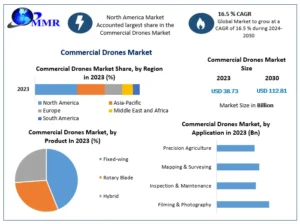
Introduction to Data Sourcing Services
In today’s data-driven landscape, businesses are constantly on the lookout for reliable information to make informed decisions. Enter data sourcing services—the unsung heroes behind effective strategies and insights. These services help organizations gather vast amounts of data from various sources, enabling them to stay ahead in a competitive market. However, venturing into the world of data sourcing isn’t without its hurdles. From ensuring quality and reliability to navigating privacy concerns, companies face numerous challenges that can hinder their success. Understanding these obstacles is crucial for any business aiming to harness the true potential of data sourcing services. Let’s delve into the key challenges faced by these services and explore innovative solutions that can pave the way for better practices in this essential field.
Challenges Faced by Data Sourcing Services
- Data sourcing services encounter several significant challenges that can hinder their effectiveness. One key issue is the lack of quality and reliable data sources. Not every dataset available online is accurate or relevant, leading to misguided decisions based on flawed information.
- Data privacy and security present another critical hurdle. With increasing regulations like GDPR, companies must navigate complex legal landscapes while ensuring they protect sensitive information from breaches.
- Additionally, the high cost of obtaining quality data can be prohibitive for many organizations. As businesses seek to leverage data-driven strategies, they often find themselves grappling with budget constraints that limit access to premium data sources.
- These challenges create a multifaceted environment where sourcing reliable data becomes increasingly difficult, yet essential for success in today’s competitive landscape.
Lack of Quality and Reliable Data Sources
Finding quality data sources can be a daunting task. Many businesses face the challenge of sifting through numerous datasets that often lack reliability.
Outdated information or poorly curated databases lead to wasted time and resources. When companies rely on such data, decision-making becomes flawed, which could ultimately affect their bottom line.
Moreover, the rise of misinformation complicates matters further. It’s essential for organizations to assess the credibility of their sources meticulously.
Inaccurate data not only misguides strategies but also erodes stakeholder trust over time. This constant struggle highlights the need for robust vetting processes in any effective Data Sourcing Service strategy.
Issues with Data Privacy and Security
Data privacy and security are critical concerns for data sourcing services. With the increase in cyber threats, protecting sensitive information has become more challenging.
Organizations often collect vast amounts of personal data from various sources. This can lead to vulnerabilities if not managed properly. Data breaches can result in severe consequences, including financial loss and damage to reputation.
Moreover, regulations like GDPR impose strict compliance requirements on companies handling personal data. Navigating these laws adds complexity for data sourcing providers who must ensure that their practices align with legal standards.
The challenge intensifies when dealing with third-party vendors. If partners do not maintain adequate security measures, they can expose your organization to risks beyond your control.
Investing in robust cybersecurity solutions is essential but may require significant resources. Balancing cost-effectiveness while ensuring high-level protection remains a pressing issue for many businesses today.
The High Cost of Data Sourcing Services
- The high cost of data sourcing service can be a significant barrier for many businesses. Companies often face unexpected expenses that quickly add up. Licensing fees, subscription costs, and personnel expenditures all contribute to this financial burden.
- For smaller organizations or startups, these prices can feel overwhelming. They may find themselves unable to access essential data needed for growth and decision-making. This challenge can hinder innovation and limit competitive edge in the market.
- Additionally, as companies scale their operations, the need for more extensive datasets increases. This results in even higher costs associated with acquiring quality information from reputable sources.
- Budget constraints force many to make compromises on data quality or reliability which could have long-term consequences. The struggle is real; finding a balance between necessary insights and affordability remains an ongoing issue for those relying on data sourcing services.
Solutions to Overcome These Challenges
One effective solution to the challenges faced in data sourcing is leveraging advanced technologies. Artificial intelligence and machine learning can enhance data collection processes, bringing efficiency and accuracy. These tools analyze vast datasets quickly, identifying trends that human analysts might miss.
Another critical approach is partnering with trusted third-party providers. Collaborating with established organizations that specialize in data sourcing ensures access to high-quality information while also mitigating risks related to privacy and security. It’s essential to conduct thorough vetting of these partners before engagement.
Implementing a robust data management strategy cannot be overlooked either. Such strategies help businesses organize, maintain, and protect their data effectively. This includes regular audits and updates which ensure compliance with ever-evolving regulations around data protection.
Investing in employee training programs is equally vital for promoting awareness about best practices in handling sensitive information. Empowered employees are crucial for maintaining a sound sourcing process.
Utilizing Advanced Technologies
Advanced technologies play a pivotal role in enhancing data sourcing services. Machine learning and artificial intelligence are at the forefront, helping to automate data collection processes. These tools can analyze vast datasets rapidly, identifying patterns that manual methods might overlook.
Automation reduces errors and increases efficiency. With algorithms designed for specific tasks, businesses can focus on strategy rather than mundane operations. This shift not only saves time but also cuts operational costs.
Additionally, cloud computing offers flexible storage solutions. It allows easy access to data from various sources while ensuring scalability as business needs grow.
Real-time analytics further enhance decision-making capabilities. Companies can obtain insights almost instantly, adjusting their approaches based on current trends and consumer behavior.
By integrating these advanced technologies into their workflows, organizations can overcome many challenges associated with traditional data sourcing methods. This innovation is crucial for maintaining a competitive edge in today’s fast-paced market environment.
Partnering with Trusted Third-Party Providers
Choosing the right third-party provider can significantly enhance your data sourcing capabilities. Collaboration with experts in the field ensures access to quality data that meets your specific needs.
These providers typically have established relationships with numerous data sources. This network allows for a wider range of information, helping you build comprehensive datasets. With their experience, they also understand compliance regulations and best practices.
Moreover, trusted partners often employ advanced technologies for efficient data collection and management. This not only saves time but also increases accuracy in sourcing relevant data.
By leveraging these partnerships, businesses can focus on their core competencies while leaving the complexities of data sourcing to specialists. It’s a strategic move that can lead to better insights and informed decision-making down the line.
Importance of Effective Data Management
Effective data management is crucial in leveraging the full potential of any data sourcing service. With vast amounts of information generated daily, organizations must ensure that their data is organized and easily accessible.
Proper management enhances decision-making processes. When teams can quickly retrieve accurate data, they can act more decisively and strategically. This agility leads to better resource allocation and increased efficiency.
Moreover, effective data management supports compliance with regulations. In a world where privacy concerns are paramount, maintaining proper records helps organizations avoid penalties associated with mishandling sensitive information.
Good practices in data governance foster trust among stakeholders. Reliable and transparent processes build confidence internally and externally—an essential factor for long-term success in today’s competitive landscape.
Conclusion
Data sourcing services play a critical role in helping businesses gather and leverage information effectively. However, navigating the landscape of data sourcing comes with its own set of challenges. From ensuring data quality to managing privacy concerns and costs, organizations face hurdles that can hinder their operations.
To thrive in this environment, it is essential for companies to adopt innovative solutions. Utilizing advanced technologies allows for more efficient data collection and analysis. Partnering with trusted third-party providers brings expertise and reliability into the mix. Furthermore, effective data management practices ensure that information remains organized and accessible.
Embracing these strategies not only mitigates risks but also enhances overall performance. Companies willing to adapt will find themselves better positioned to harness the power of data sourcing services for future growth and success.






